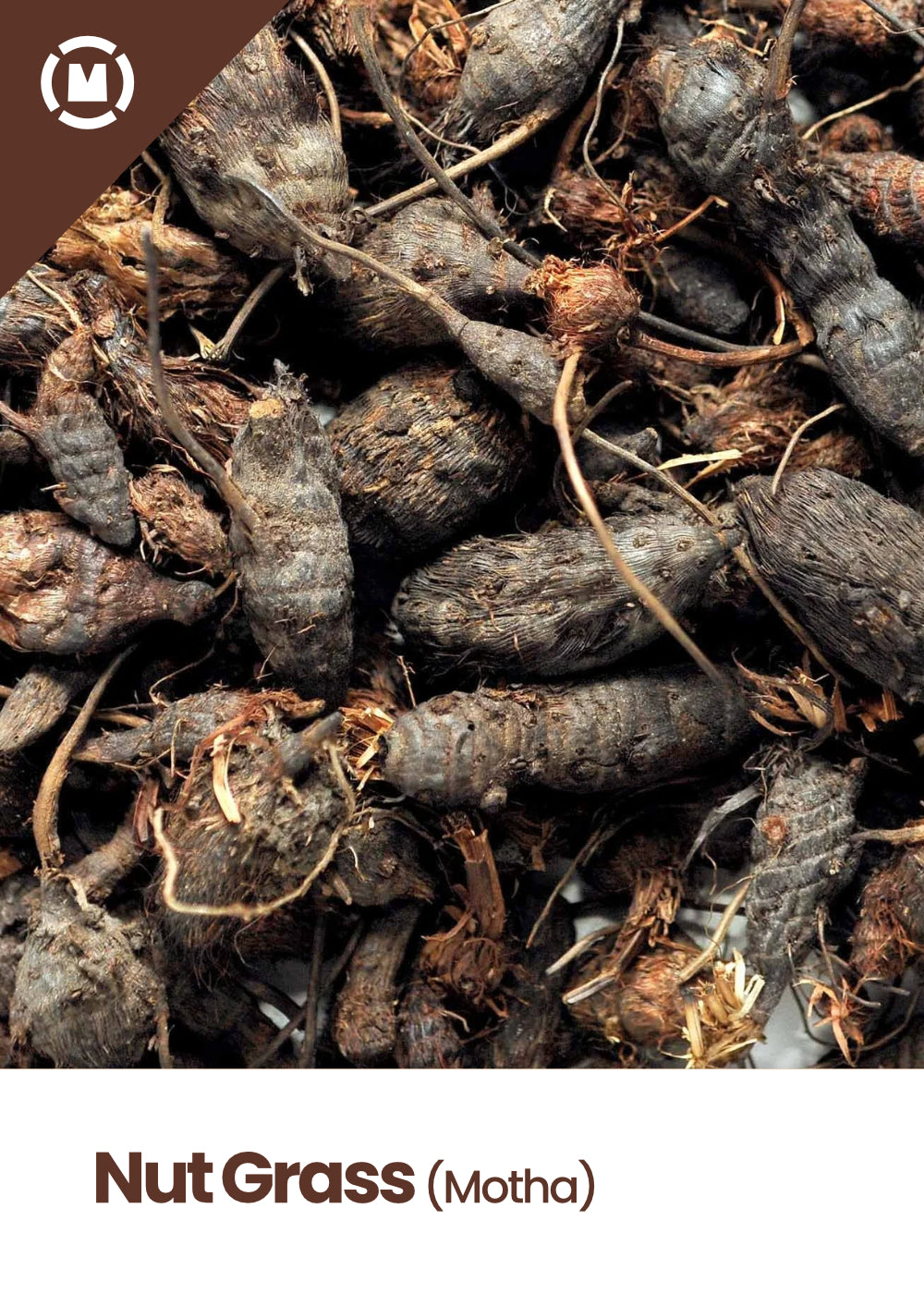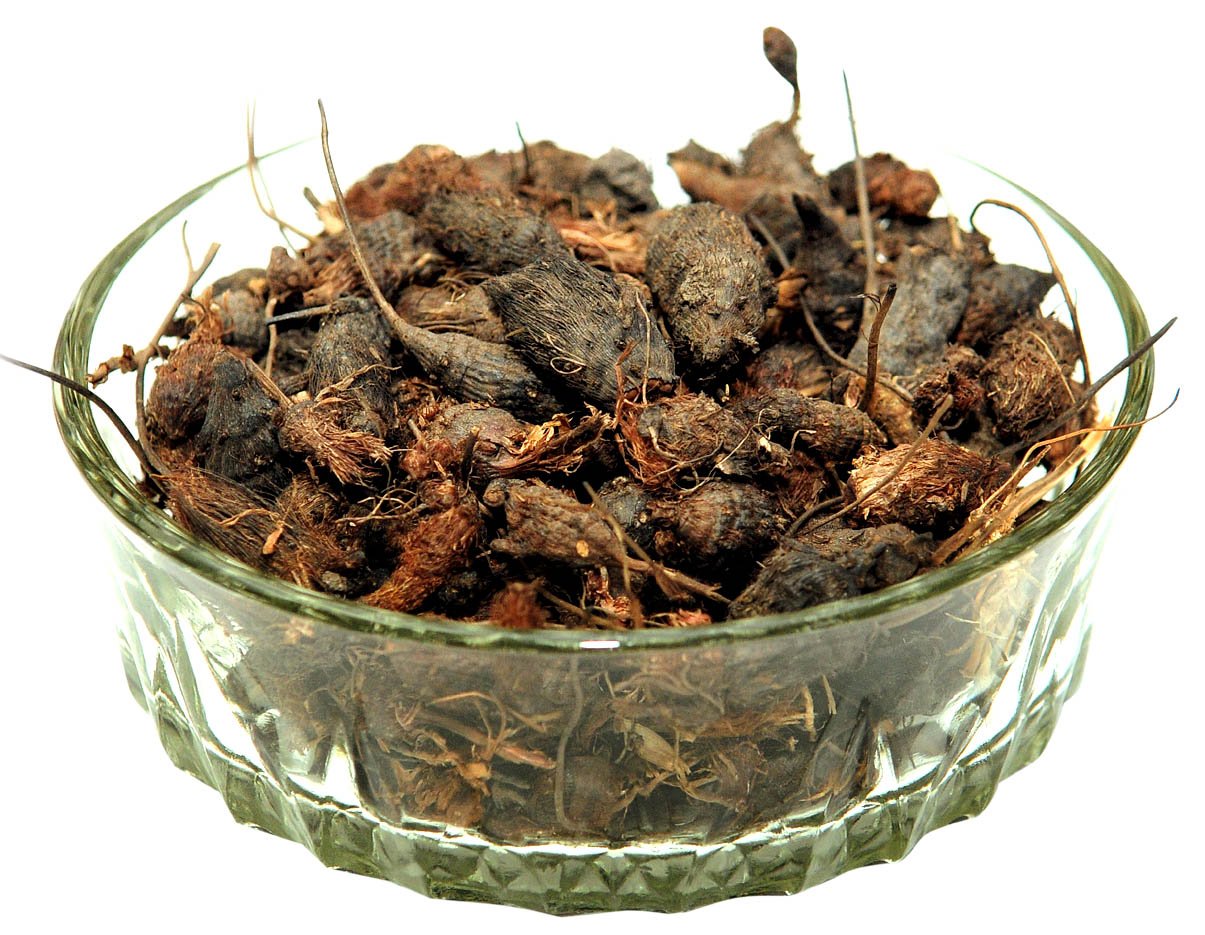M-Spice
Nut Grass: Mustaka
Nut Grass: Mustaka
Couldn't load pickup availability
Nut grass has been used in traditional Chinese medicine and Indian Ayurvedic medicine for its beneficial properties. Nut grass or Nagarmotha (Cyperus rotundus) is used in the treatment and prevention of many ailments. Rhizomes of the plant are used to treat diarrhea, intestinal parasites, indigestion and bowel disorders.
Nut grass is beleived to lighten the skin tone by inhibiting the formation of the skin pigment melanin which darkens the complexion. Many skin whitening preparations contain Extrapone which uses powdered extracts of nut grass roots. This is a natural way of skin lightening without any harmful or toxic side effects.
Nut grass is also used to treat fungal infestation, rashes and other skin conditions. Cyperus rotundus has also been touted as effective in weight control. Some of the chemical constituents present in Nut grass make it an effective remedy against indigestion.
| Glossary | |
| Botanical name | Cyperus rotundus |
| Common name | Coco grass, Nutgrass, Purple nutsedge |
| Hindi | Nagarmotha, Deela, gantola |
| Assamese | Mutha, Somad Koophee |
| Bengali | Mutha, Musta |
| Kannada | Abdahullu, Koranari-gadde |
| Malayalam | Kuzhimuthanga, Muthanga, Karimuttan |
| Marathi | Barik motha, Bimbal |
| Sinhalese | Kalanthi |
| Tamil | Korai Kizanghu, Muthakasu |
| Telugu | Tungamuste |
| Urdu | Saad-e-Kufi, Habu-ul-zillam, Nagarmotha |



